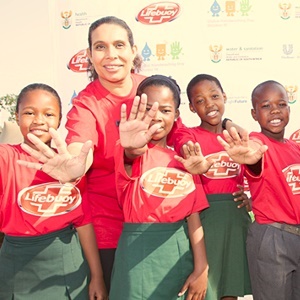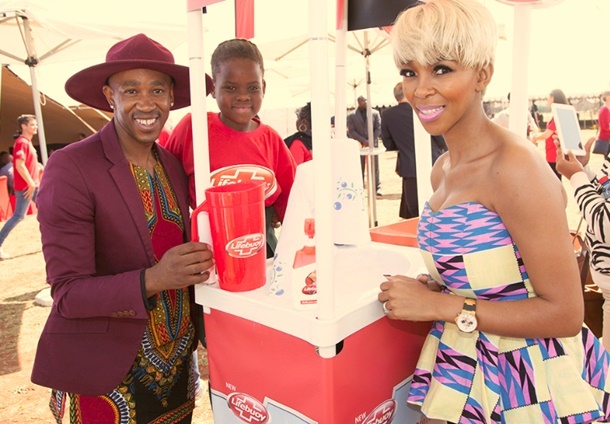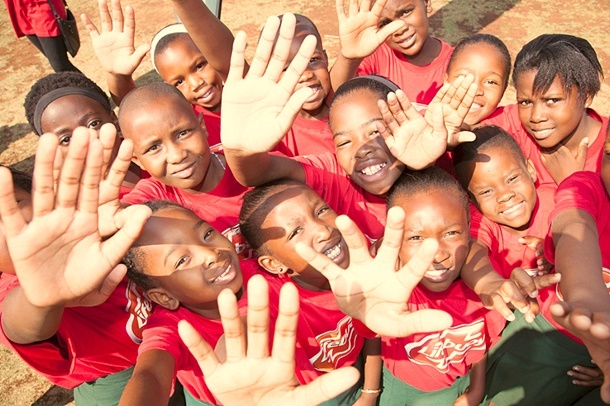
Handwashing can reduce newborn deaths by almost 50 percent if newborns are cared for by birth attendants and mothers who wash their hands properly, according to Dr. Myriam Sidibe.
She was speaking in Soweto on the 8th Global Handwashing Day at Unilever's Lifebuoy campaign in collaboration with the departments of Health and Water & Sanitation.
Read: Hand washing - the cheapest vaccine ever
"This year, for the first time, Lifebuoy has collaborated with the South African government to celebrate Global Handwashing Day," Sidibe, who is Unilever's Hygiene and Nutrition Social Mission Director for Africa, told Health24.
She said Unilever is calling on the government in South Africa to:
- Ensure national public health and education strategies address and resource policies to promote the benefits of hand washing with soap
- Recognise that through working with the private sector, these efforts can be scaled up
- Initiate a multi-stakeholder strategy to address hand washing with soap rates. These should include the private sector, civil society and women’s groups
Read: Pneumonia, killer of children
"There are 1.7 million children who never reach their fifth birthday every year as a result of diarrhoea and pneumonia," said Sidibe
"Many of these deaths are easily preventable through simple practices like handwashing with soap - the single most cost effective way to prevent disease."
However, she pointed out that while hand washing with soap is simple and effective, yet not everyone does it.
Read: South Africa's dying babies
According to the Public-Private Partnership for Handwashing the frequency with which people wash their hands with soap at the critical moments – before eating and after using the toilet – ranges from never to one in three times, said Sidibe.
"So turning handwashing with soap into an ingrained habit that is practised every day is the biggest challenge."
Caption: Mafikizolo's Theo Kgosinkwe and Nhlanhla Nciza with a learner from Faranani Primary School in Soweto on Global Handwashing Day. (Image: Supplied)
Sidibe said Lifebuoy’s hand wash behavior programme, called Help a Child Reach 5, is now the largest behavior change programme in the world.
"As at the end of 2014 Lifebuoy has reached 257 million people in 24 countries since 2010 and 8 million people locally and aims to change the handwashing behaviour of one billion people by 2020."
She said the programme has 2 pillars - changing the behaviour of schoolchildren and their parents via an interactive schools solution and affecting the behaviour of new mothers and health care workers via a neonatal programme.
Sidibe explained to Health24 that there are three reasons why Lifebuoy targets schoolchildren:
1. Children are particularly at risk from hygiene related illness
2. Children are very effective change agents. When children start primary school, they start to practice many new habits independently from their parents – including hand washing with soap. Reaching children at this influential moment in their lives maximises the opportunity to create a healthy habit which lasts a lifetime.
3. Children take the message home, affecting change in their own families and communities. By educating the child, Lifebuoy ultimately reaches the whole family with the hand washing message.
In the three-year period of 2011 to 2013, South Africa recorded over 60 000 perinatal deaths, a combination of foetuses that are born dead, known as stillbirths, and babies that die in the first week after birth.
"Hand washing can reduce newborn deaths by an overwhelming 41% if newborns are cared for by birth attendants and mothers with proper hand washing habits," said Sidibe.
"It is our hope that through working with local clinics and schools in South Africa, we will educate and empower mothers and children to reduce the risk of infections, thereby creating healthier families and communities."
Sidibe said governments can prevent diarrhoea and pneumonia and make rapid progress towards reducing child mortality by partnering in hand washing behaviour change programmes.
Also read:
Higher sugar levels in pregnancy bad for baby's heart
7 week old baby smiles as he hears for the first time




 Publications
Publications
 Partners
Partners
















